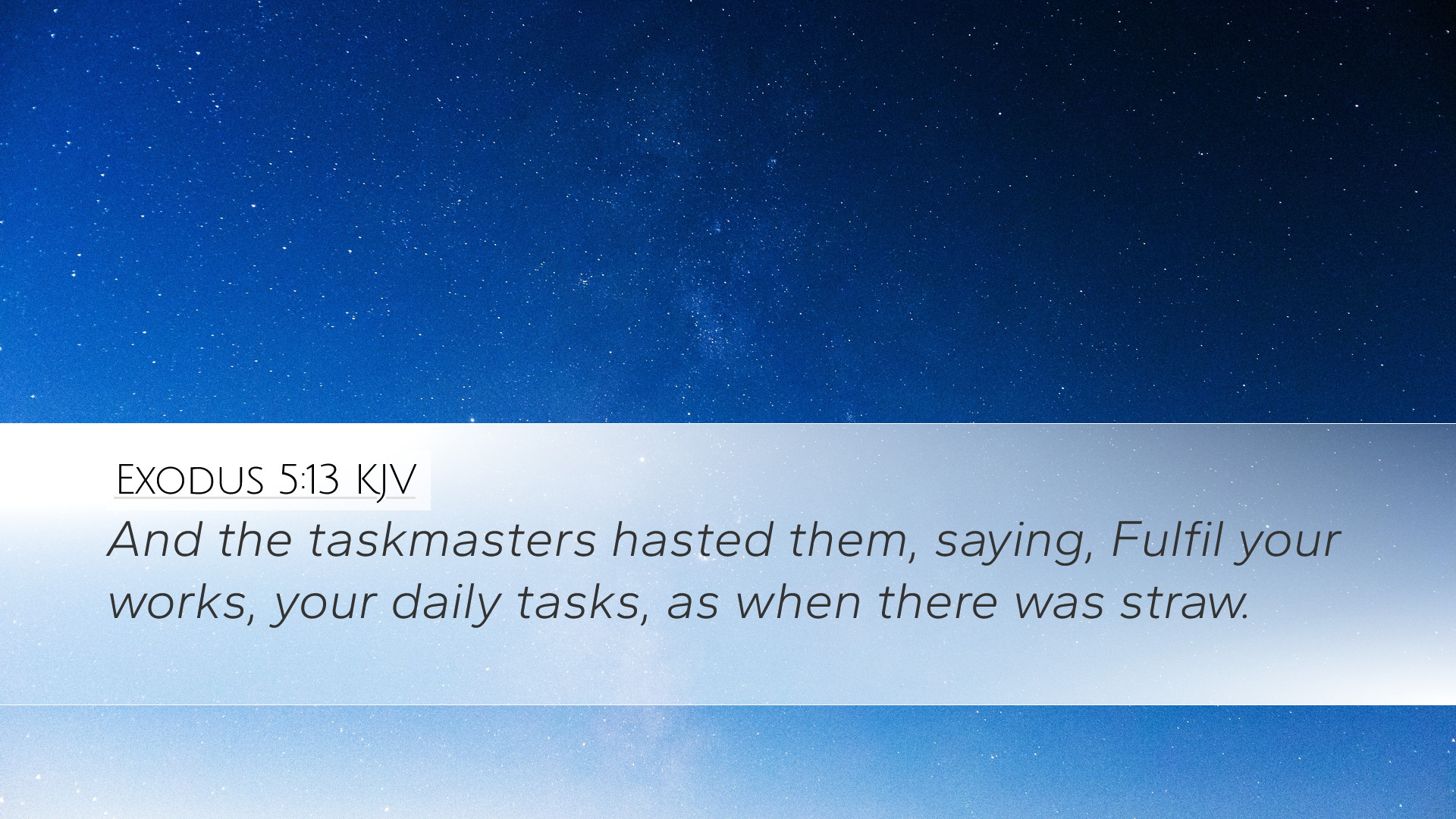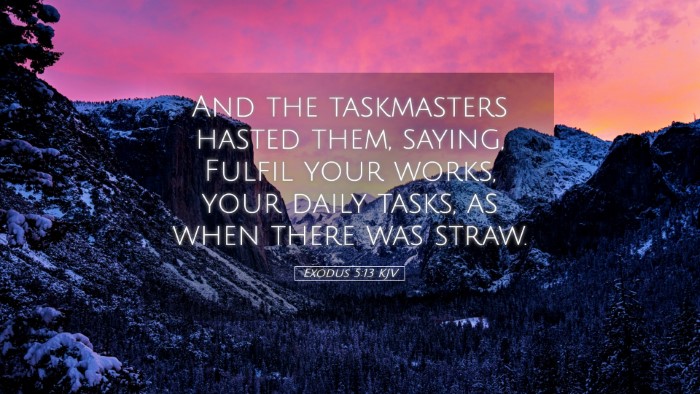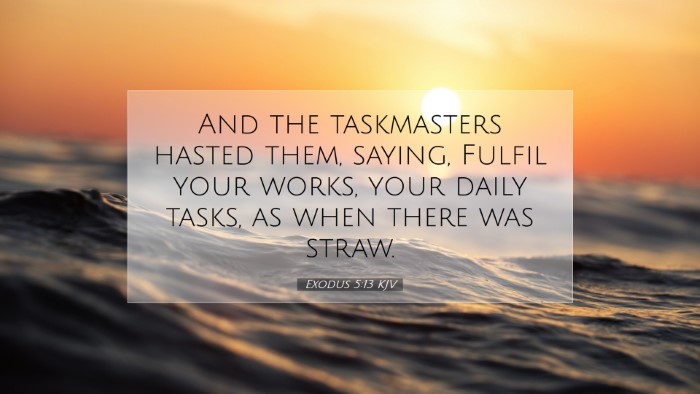Commentary on Exodus 5:13
Verse Reference: Exodus 5:13
"And the taskmasters hasted them, saying, Fulfil your works, your daily tasks, as when there was straw."
Contextual Overview
This passage is situated within the broader narrative of the Israelites' enslavement in Egypt and the initial encounters between Moses and Pharaoh. Following Moses’ and Aaron's plea to Pharaoh to let the Israelites go, instead of granting their request, Pharaoh intensifies their burdens.
Insights from Commentators
-
Matthew Henry
Persecutors’ Cruelty: Henry emphasizes the harshness of the Egyptian taskmasters, who are indifferent to the suffering of the Israelites. Their hastiness in demanding the quotas reflects not only their authority but also a deeper spiritual reality: the world often seeks to oppress God’s people.
Work as a Burden: The verse highlights the overwhelming nature of their labor—demanding the same output while increasing their burdens, which signifies the relentless pressure of sin upon the soul, mirroring spiritual oppression.
Symbolism of Straw: Straw was an essential component in making bricks, and its absence would symbolize increased difficulty and hardship. Henry draws a parallel between this and the challenges Christians face when battling against temptation and despair.
-
Albert Barnes
Taskmasters’ Demands: Barnes notes the urgency with which taskmasters are portrayed—“hasted them,” indicating a relentless and ruthless approach in enforcing their labor. This illustrates a human condition where those in power can be oppressive.
Daily Tasks: Barnes elaborates on the notion of “daily tasks,” stressing on the cyclical nature of labor. It serves as a reminder that often life can impose continual burdens, requiring faith and perseverance from believers.
Spiritual Application: The supernatural counterpoint is that even in our trials, God’s presence and promises sustain His people, much like God’s eventual deliverance of Israel, is a reminder that our toil may seem unbearable, yet it serves a divine purpose.
-
Adam Clarke
Covenantal Context: Clarke highlights the backdrop of covenant that God had made with the people of Israel. The burdens laid upon them serve as a test of their faithfulness amidst trials, and Clarke suggests that these trials prepare them for future deliverance.
Contrast of Freedom: He contrasts the misery of forced labor with the promised blessing of freedom, indicating that the current suffering is an essential pathway to liberation. Clarke encourages believers to find strength in the promise of redemption, as it offers hope that transcends present circumstances.
Divine Providence: Ultimately, Clarke emphasizes that even amidst oppression, God’s providence is at work, molding His people's destiny. The suffering encountered will lead them closer to the manifestation of God’s promises.
Theological Implications
Exodus 5:13 offers profound theological implications relevant in pastoral training, academic study, and individual devotion. Below are key themes that emerge from this verse:
- The Nature of Authority: The dynamics of power illustrated in this text raise essential questions about authority, justice, and moral obligation toward the oppressed.
- God’s Sovereignty: The narrative underscores God’s sovereignty, even amidst suffering. It serves as a reminder that God is aware of His people's struggles and is active in their history.
- The Call to Endurance: This verse is a reminder of the virtue of endurance in the Christian faith. The trials faced by the Israelites can parallel the struggles of faith journeys today.
Practical Applications
In light of the rich insights found in Exodus 5:13, several practical applications can be gleaned:
- Support the Oppressed: Encourage communities to stand against injustice, providing aid to those who are burdened and exploited in modern contexts.
- Cultivate Resilience: Foster resilience in believers, teaching them that trials have a purpose and can lead to deeper faith and spiritual growth.
- Persevere in Prayer: Encourage persistent prayer for God’s intervention in personal and communal struggles, reminding believers that God hears their cries.
Conclusion
In conclusion, Exodus 5:13 reveals not only the historical and cultural context of the Israelite experience but also timeless principles that resonate within Christian theology and experience. The collective insights from commentators such as Matthew Henry, Albert Barnes, and Adam Clarke underline the importance of viewing trials through the lens of faith, transforming burdens into a pathway to divine deliverance.


